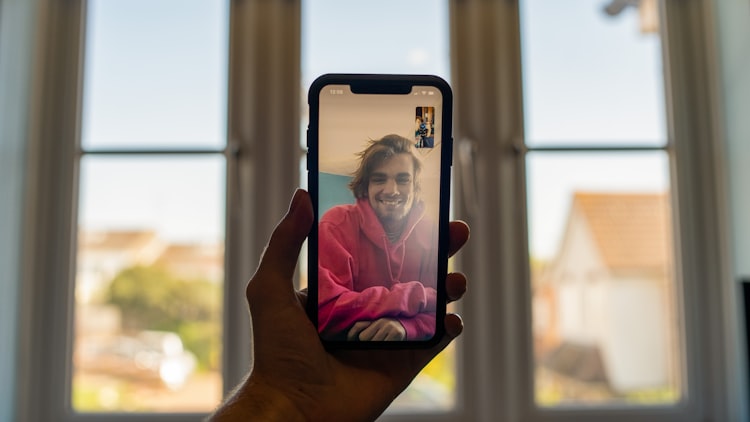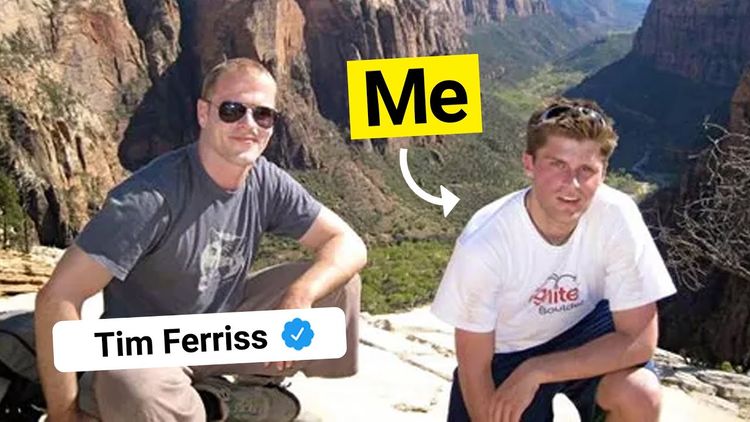Thinking of Killing Yourself? Read The Suicide Prevention Checklist First

The following checklist was assembled by Andrew O’Brien and Charlie Hoehn.
Andrew spent 12 months in Iraq as a lead gunner during his 4-year term in the Army, and attempted to take his own life in November, 2010.
Charlie has written books on saving his mental health. For five years, his blog was the #1 Google result for the search “cure anxiety.”
1. Find your “One Thing.”
Your mind has formed a rut that, for whatever reason, pushes your thoughts into dark places. What you need is just one thing that can reliably pull you back out. Think of one really positive memory or person in your life that makes you smile, makes you laugh, or brings you tears of joy. Focus your thoughts on that one thing for the next 60 seconds, and return to it whenever you’re struggling. For Andrew, his “one thing” was his brother, who helped him through a terrible childhood.
2. Ask for peer support.
Andrew believes this is the best thing a suicidal person can do. If possible, reach out to someone who’s overcome suicidal tendencies, then have a completely honest and transparent discussion with them. Here’s a quick story to illustrate the importance of peer support:
“A man was walking down the street and fell into a hole. The walls were so steep that he couldn’t get out. A doctor passed by and the man shouted, “Doc, can you help me out?” The doctor wrote a prescription, threw it down the hole and moved on.
Then a priest came along, and the man shouted, “Father, I’m down in this hole, can you help me out?” The priest jotted down a prayer, tossed it down the hole and moved on.
Then the man’s friend walked by. He yelled, “Hey, brother, can you help me out?” and his friend jumped down into the hole. The man said, “Are you stupid? Now we’re both down here!” His friend smiled and said, “Yeah, but I’ve been here before, and I know the way out.””
If you don’t know someone who’s been through suicidal tendencies, call the suicide hotline:
1-800-273-8255
Several people have confessed to Andrew that deciding to make this call saved their life.
3. Write a letter of gratitude to someone you care about, then read it to them.
A suicidal friend of Charlie’s did this when he was at the very lowest point in his depression. At the time, this person was on several medications, and literally kept a gun in the trunk of his car with the intent of using it on himself and his fellow students.
Amazingly, he was able to pull himself out of this severe depression by writing one letter of gratitude to a friend or family member, every other day, for three weeks. He read every letter directly to the person it was for, either face-to-face or over Skype. He attributes this simple practice to his rapid recovery, and believes that it’s 10 times more effective (and sustainable) than taking antidepressants.
After you’ve done this, commit to practicing gratitude for yourself with The 5-Minute Journal. Charlie used this journal every day for two months, which helped him overcome his post-breakup sadness.
4. Go to bed at the same time every night, for two weeks.
One of the best ways to stop feeling terrible is to prioritize sleep, every single night. But first, you have to acknowledge that you truly deserve more sleep. Your body and mind desperately need to rest and restore. And there’s no reason not to allow more sleep in your life. It’s pleasant, it’s free, and your body truly craves it!
Chronic sleep deprivation can really mess up your mind. We certainly didn’t evolve to get as little sleep as we do… With the industrial revolution and the invention of the light bulb, “time” became “money” and we started treating our bodies like machines. We slept for 8 hours, and tried to be productive for 16 hours. And today, many of us run on just 6 hours of sleep (or less). As early as 200 years ago, humans often slept a total of 10-12 hours throughout the day (usually two blocks of 4-5 hours). Our cells are programmed for 20-40% more sleep than we are consistently getting. Don’t believe me? Watch this Navy SEAL’s TED talk:
5. Reconnect with nature.
Go outside and sit in the sunshine — ideally in nature, away from bustling city life — for 15 minutes before 10:00am (or after 5:00pm). Better yet: go barefoot and reconnect with the earth. Don’t allow yourself to sit indoors all day long, especially in dark rooms! Your body needs sunlight and fresh air, which will give you a positive burst of energy. A small dose of sunshine makes your body feel great, so take a break from modern living and unplug from your cell phone. Surround yourself with nature’s quiet stillness.

Photo by Kevin Dinkel
6. Consume joyful content; eliminate doom-and-gloom “humanity at its worst” media.
The information you allow into your conscious awareness determines the quality of your life. In other words, you are what you think. If you are subsisting on content that’s unsettling and soulless (see: the news, reality shows, horror movies, books written by hateful authors, porn), your mind will become stressed, scared, and cynical. Listen to happy songs. Read uplifting books. Watch funny videos and movies. Cut out the fear-mongering news.
7. Enjoy Guilt-Free Play with Friends!
Today, depression levels are higher than they were during the Great Depression. Anxiety levels are higher than they were during the Cold War (when we were under constant threat of nuclear holocaust). Children are 4X more likely to commit suicide than they were during the 1950’s. What’s caused this rapid decline in our mental health?
A strong correlation researchers have found in our societal decline of mental health is the cultural erosion of PLAY. Again, this is simply not how we evolved. Human beings play more than any other mammal, and we are designed to play our entire lives! Play is not childish or frivolous; it is essential to our ability to function and bond with one another.
The world doesn’t have to feel so intense. It CAN be fun again, and it’s really not that difficult. You just need to acknowledge one of your biggest problems — chronic play deprivation — and then give yourself permission to fix it. And the easiest way to get started is to pick up your phone and send someone you care about this text message:
“Life has been feeling too serious lately. I need to take a break and do something fun. Want to meet up and play together? :)”
Humans are social animals, who desperately need to feel connected to each other in order to feel happy. Playing with friends on a regular basis prevents you from spending all day indoors, working in solitude and isolation.
When Charlie asked Tim for his advice on overcoming debilitating stress, Tim said: “Remember to EXERCISE daily. That is 80% of the battle.” It’s true. Exercise is scientifically proven to drastically reduce depression and anxiety. But exercise does not have to be a chore; it can be play! In other words, physical movement that’s legitimately FUN for you and your friends.
In Charlie’s experience, the best forms of play are outdoor sports. They are social (more than one person is required), mildly competitive, and cause everyone to break into a sweat in the fresh air and sunshine. However, any fun play activity that you can do on a regular basis with your friends works. Here are three recommendations:
Play with a dog. They’re man’s best friend for a reason: they love unconditionally. It’s well-known that dogs boost our happiness, so if you don’t have a dog, just ask a friend if you can take their dog to the park.

Photo by Ted Fu
Join a social sports team. Co-ed sports are really fun to play (even if you’re not “great” at them). Basketball, soccer, martial arts, and ultimate frisbee get the blood pumping like crazy, and best of all, they get you playing with a full team of people who you become friends with. Of course, you can always try to round up your friends to play pickup games at the park. Charlie strongly recommends paying to join a team though, because the only way most of us commit to playing is if we spend money. So invest in your happiness!
Sign up for an Improv Class. Improv is one of the best ways to surround yourself with warm-hearted, supportive, fun people. You get to goof around and laugh for three hours each week (hugely important), and you’ll make tons of friends in the process (no more isolation!) If you stick with improv long enough, your social anxiety will slowly fade away. Charlie went from being a lonely, anxious beginner who didn’t know anyone…

… to performing in 90-minute improvised narratives with his good friends.

Photos by The Hideout Theatre
Sure, it’s scary in the beginning and you may have a fair amount of anxiety at first (everyone does), but it’s absolutely worth pushing through the initial discomfort.
Take Action! Choose one of the play activities above and commit to it! If the activity is not in your schedule, it probably won’t happen (let’s be honest — spontaneous play is great but it just doesn’t come up very often when you’re in the working world). Then get outside and play. Whether it’s catch, or a pickup game, or just a long walk… go do something fun right now that will bring you together with someone you care about.
In Case of Emergency: Fast (No food, just water).
Under healthy conditions, your body and mind will NOT be convinced that you need to end your life. Oftentimes, it’s our bad habits and lifestyles that can lead us to these frightening conditions. If you are feeling suicidal and the issue isn’t psychosomatic (i.e. you’re not “thinking” your way into suicide, but your body seems to literally be calling for it), the source of your problems may be an overwhelming amount of poisonous chemicals that have built up in your body. If this is the case, a supervised extended fast (2-10 days) can be a safe and highly effective way to help your body expel those toxins and rejuvenate your immune system.
Fasting is known as “nature’s surgery.” When you’re fasting, your body can finally stop diverting the majority of its energy to digestion, and start eliminating foreign matter and repairing weakened organs. Charlie has experimented with fasts ranging between 2 to 9 days — no food, just water — with zero negative side effects (apart from feeling a bit fatigued and cranky in the first 72 hours).
This post won’t allow us room to give thorough instructions on fasting, so to learn more about how to fast properly, please read Paul Bragg’s The Miracle of Fasting. Don’t attempt an extended fast before reading this book! (Bonus points: watch Fast, Sick, and Nearly Dead).
# # #
“The world is like a ride at an amusement park. And when you choose to go on it you think it’s real, because that’s how powerful our minds are. And the ride goes up and down, and around and around; it has thrills and chills, and it’s very brightly colored and loud. And it’s fun, for awhile. Some of us have been on the ride for a long time and we begin to question, “Is this real, or is this just a ride?” But other people have remembered, and they come back to us and say, “Hey, don’t worry, don’t be afraid, ever, because… this is just a ride.” – Bill Hicks





Member discussion